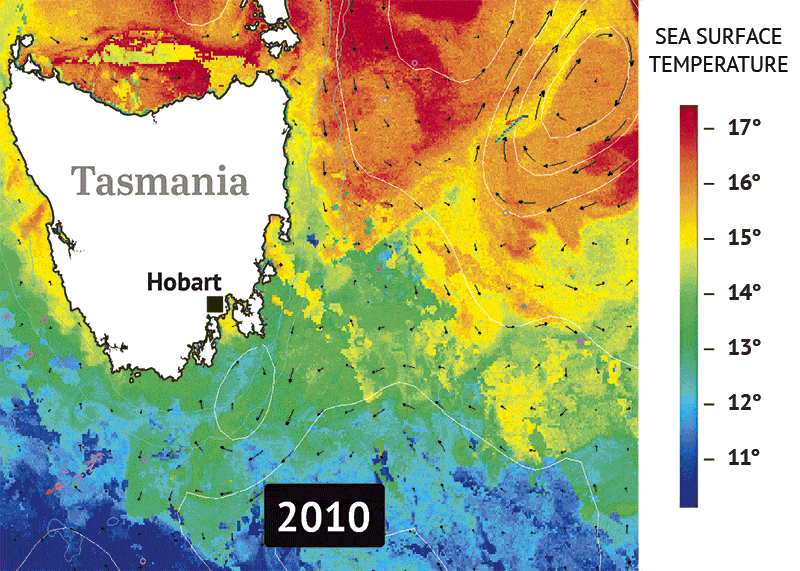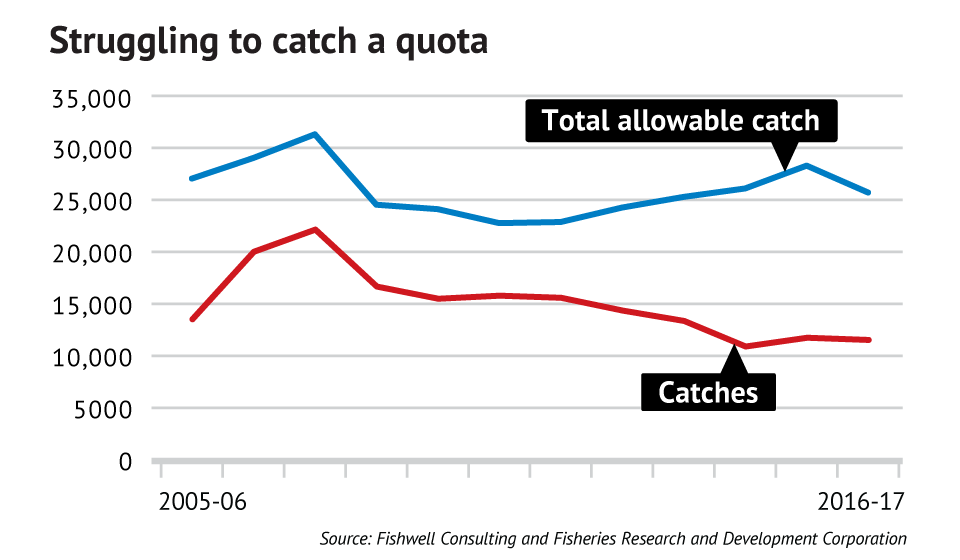Empty Nets, Spiking Temps Off Tasmania; Fishers Can't Hit 50% Of Quota For 2/3 Of Mainstay Species
 Sea surface temperatures off the coast of Tasmania on November 23, 2010-2017. Data: Integrated Marine Observing System (IMOS). Graphic: The Sydney Morning Herald
Sea surface temperatures off the coast of Tasmania on November 23, 2010-2017. Data: Integrated Marine Observing System (IMOS). Graphic: The Sydney Morning Herald
Rising temperatures and climate change have been blamed for the failure of stocks of some of the most popular eating fish in Australia’s Southern Ocean to recover from declines despite more than a decade of protection. The troubling findings come as new modelling from the CSIRO shows further temperature rises already “locked in by past emissions” could see fish stocks fall by another 20 per cent within the next two decades.
Dr Alistair Hobday, a principal research scientist at the CSIRO, said there was “no doubt” climate change was an important factor in the failure of some over-fished species to recover. A report by the government’s Fisheries Research and Development Corporation has found ocean temperatures increased by nearly 2 degrees over the past 80 years in the Southern and Eastern Scalefish and Shark Fishery, a “global hotspot” that was warming at almost four times the global average.
 Total catches and total allowable catch in the Southern Ocean, 2005-2017. Data: Fishwell Consulting and Fisheries Research and Development Corporation. Graphic: The Sydney Morning Herald
Total catches and total allowable catch in the Southern Ocean, 2005-2017. Data: Fishwell Consulting and Fisheries Research and Development Corporation. Graphic: The Sydney Morning Herald
he affected region sweeps from the lower east coast of Western Australia across Victoria and Tasmania to the Queensland-NSW border – one of the most productive ocean zones in the country. Stringent new controls were introduced in 2005 to try and reverse the effects of long-term over-fishing in the area but new data shows that by 2015-16, commercial fishing operators were still catching less than half their allowed quota for more than two-thirds of species.
“When you reduce pressure [from fishing] you expect the stocks to improve. If you are catching fish and then you stop catching fish, the numbers of fish should come back. But they haven’t, and climate change is stopping that recovery in some cases, such as for jackass morwong, eastern gemfish, and blue warehou,” Dr Hobday said.
EDIT
https://desdemonadespair.net/2020/02/empty-nets-and-tropical-fish-in-tasmania-as-climate-change-hits-southern-ocean.html


